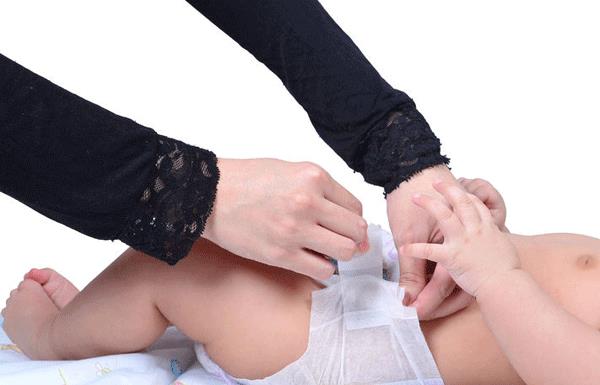Babies often fussy and cry during the day making mothers even more tired. To gradually limit and stop this situation mothers should find out the clear cause.
To view this video please enable JavaScript, and consider upgrading to a web browser that supports HTML5 video
\ "Great way \" 5s for fussy babies (QC)
For fussy babies, no "strategy \" is more effective than the 5S formula. Through these simple steps, the mother will make a restless, uncomfortable baby become relaxed, secure and comfortable. What is a 5S strategy and why is it so effective?
see more
content
The child is hungry
Change diapers for me, mom!
Fear of loud noise
I'm sick!
Vomiting when eating
Colic syndrome
Babies often fussy after birth due to many different causes. Except for the reasons that come from illness, only those who regularly take care of the baby like mothers can observe and find out exactly where the reason starts.

The more persistent the baby cries, the more susceptible the mother is to stress and depression
There are 6 other basic reasons that, according to Dr. Simon Ng, Mount Alvernia Hospital, Singapore, it is easy to cause a crying situation:
The child is hungry
It seems: Baby crying varies from small to loud depending largely on how hungry the baby is. Mother can be easily perceived by observation.
The baby moved the tip of the tongue from side to side as if searching for the nipple.
If the mother touches the baby's face with her hand, the baby can turn her head in that direction immediately, surely hungry.
Baby put finger in mouth , button repeatedly
What to do: Feed your baby now, mom!
Change diapers for me, mom!
Seems like: Your baby may cry loudly or groan from being upset with… a dirty, wet diaper. At night, the wet vaginal skin makes babies cry more often.

Don't forget to check your baby's diaper regularly to avoid uncomfortable dampness
What to do: Don't leave diapers and diapers for too long. Not all infants cry when the tax is dirty, but mothers should still check tax regularly, such as after feeding babies, to make sure their genitals are always dry. The longer the baby wears the diaper, the more likely it is to develop bacteria, affecting the baby's health. Your baby will stop crying if the diaper is changed, and the hygiene is clean.
Fear of loud noise
It seems: Babies get scared in noisy crowded places or cling their hands together like they are in self-defense ... All of these can make babies cry more.
What to do: At this time, the child wants a lot of cuddling to feel safe and protected. While in the fetus, the baby can hear the mother's heartbeat, the steady, rhythmic sound has a great effect in alleviating the feeling of fear. Clapping and soft whispering in your baby's ear will help your baby stop crying soon.
I'm sick!
Seems: If your baby cries continuously for an hour, chances are she has pain or body discomfort. At this time the baby cried loudly, violently. Some common illnesses: Fever, vomiting, cough, diarrhea or constipation. Sometimes, those are unpredictable causes. For example, possibly being bitten by an insect or an allergy… Or maybe your baby just feels too hot or cold.
What to do: Take your baby to the doctor for a checkup as soon as possible.
It seems: Babies often persist in crying immediately after eating, with occasional vomiting, most likely feeling uncomfortable.

Do not let your baby crawl, run, jump or play right after eating
What to do: According to Dr. Simon, mothers should pick up the baby and patted the back to make them feel comfortable. The mother should let the baby sit still, not let the baby run or play, play at least 20 minutes after eating.
Colic syndrome
It Seems: Colic is a term used to describe nagging non-stop crying in a healthy child, especially an infant. This syndrome usually starts from 2 to 4 weeks of age and continues until 3-4 months old. The reason may be that the baby's immature digestive system is gradually forming, so it is possible that the baby will have stomach pain because of allergies or intolerance to certain substances in breast milk and formula.
What to do: Moms try to pamper, breastfeed or massage your baby. Use baby oil or a gentle lotion for the back, abdomen, arms and legs. This is also a great way to bond with her. If none of these methods work, discuss with your pediatrician if you should give some of your probiotics or a breeze.

11 ways to comfort your baby When your baby cries One of the least lovable moments a little angel is when the baby cries. How do you ease these sulk in the simplest way? Here are 11 easy to use tips to calm your baby for mothers.















